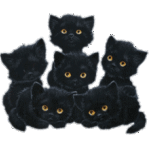Post by QueenFoxy on Jul 27, 2017 22:11:28 GMT -6
Spring
The first day of spring is March 20th (sometimes March 21st), and it is also known as the vernal equinox. This means it is the exact day separating winter from spring. Actually, to be more precise, it is the first day of spring north of the equator - in the south it is the first day of autumn.
Equinox is a Latin word which means "equal night". This is the time of the year (and there are two days in each year) during which the day and night are of equal length.
Spring is the time of year when winter is ending yet summer has not yet begun. It is time to put away the winter coats and get out the swimming trunks. Before long the flowers will bloom and the air will buzz with insects.
Traditionally, spring has been associated with the start of life. This is the time when the earth wakes up from it's sleep (winter) and the world appears to be reborn.
This was a very important time in the past, as people stop eating their winter stores and begin planting their crops. In addition, the temperature was greater so people did not need to spend much of their energies figuring out how to stay warm.
Eggs play a very important part in ancient myths regarding the vernal equinox. Of course, birds begin to lay their eggs in Spring, which was very significant to ancient folks. According to folklore, this is the one time of each year when an egg could be stood on end. If an egg can be balanced on it end during this equinox, at exactly the say time when the day and night are also in balance, then Earth and nature are said to be in harmony.
The Spring equinox was considered the start of the Pagan new year. This was the day of resurrection of the sun god from the underworld of winter. He met his goddess, Eostre (which comes down to us in the words East and Easter), who was a diety of the dawn. She was associated with new life, and many of the traditions of Easter are derived from these ancient Pagan rituals and beliefs.
The first day of spring is March 20th (sometimes March 21st), and it is also known as the vernal equinox. This means it is the exact day separating winter from spring. Actually, to be more precise, it is the first day of spring north of the equator - in the south it is the first day of autumn.
Equinox is a Latin word which means "equal night". This is the time of the year (and there are two days in each year) during which the day and night are of equal length.
Spring is the time of year when winter is ending yet summer has not yet begun. It is time to put away the winter coats and get out the swimming trunks. Before long the flowers will bloom and the air will buzz with insects.
Traditionally, spring has been associated with the start of life. This is the time when the earth wakes up from it's sleep (winter) and the world appears to be reborn.
This was a very important time in the past, as people stop eating their winter stores and begin planting their crops. In addition, the temperature was greater so people did not need to spend much of their energies figuring out how to stay warm.
Eggs play a very important part in ancient myths regarding the vernal equinox. Of course, birds begin to lay their eggs in Spring, which was very significant to ancient folks. According to folklore, this is the one time of each year when an egg could be stood on end. If an egg can be balanced on it end during this equinox, at exactly the say time when the day and night are also in balance, then Earth and nature are said to be in harmony.
The Spring equinox was considered the start of the Pagan new year. This was the day of resurrection of the sun god from the underworld of winter. He met his goddess, Eostre (which comes down to us in the words East and Easter), who was a diety of the dawn. She was associated with new life, and many of the traditions of Easter are derived from these ancient Pagan rituals and beliefs.






